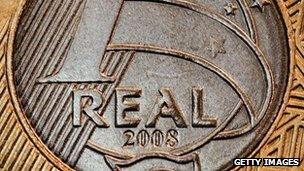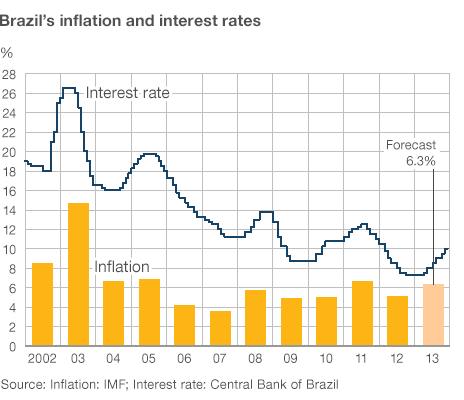Brazil raises interest rate to 10% as it battles inflation
- Published

The fall in the value of Brazil's currency is seen as a key reason behind higher consumer prices
Brazil's central bank has raised its benchmark interest rate to 10% from 9.5%, the sixth time in a row that it has put up borrowing costs.
The latest rise has taken the key rate to the highest level since March 2012.
The rises come as Brazil has been trying to rein in inflation. Consumer prices in the country rose by 5.8% in October from a year earlier, above policymakers' 4.5% target.
Prices have been rising in part due to the fall in the Brazilian currency.
The Brazilian real has fallen nearly 20% against the US dollar since May this year.
The decline has been blamed on an outflow of capital triggered by speculation that the US Federal Reserve will taper its stimulus policy, leading to a stronger dollar.
The Fed has used the programme, known as quantitative easing, to increase the money supply and improve liquidity in the financial system.

A part of that increased liquidity flowed to emerging economies, triggering a surge in stock and asset prices over the past few years.
But fears that the US may scale back the programme has seen investors pull out money from emerging nations such as Brazil, hurting their currencies.
Asian economies, such as Indonesia and India have also faced similar issues with their currencies in recent months.
- Published30 August 2013
- Published8 October 2013
- Published23 August 2013
- Published17 July 2013